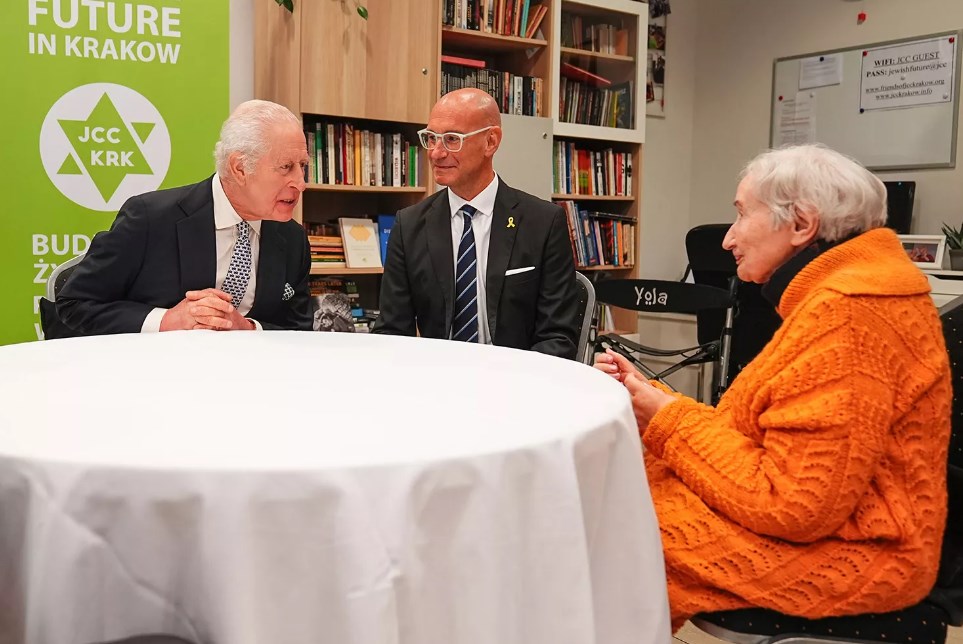The 80th anniversary of Auschwitz’s liberation brings survivors, world leaders, and communities together to honor history and its lessons.
Holocaust survivors recount harrowing experiences, urging remembrance amidst rising antisemitism.
The event symbolizes resilience, reflection, and a call for global unity to combat hate and uphold human dignity.
Content Highlights
- Holocaust Memorial Day and Auschwitz liberation’s 80th anniversary observed globally.
- Survivors recount experiences to preserve history and raise awareness.
- Antisemitism increases, highlighting the ongoing relevance of remembrance.
- World leaders participate in tributes, focusing on survivor voices.
- Symbolic freight train car commemorates Hungarian Jews deported to Auschwitz.

Eighty years after the liberation of Auschwitz-Birkenau, survivors, world leaders, and communities gathered to honor the resilience of those who endured its horrors and the memories of the millions who perished.
Among the voices was Jona Laks, a 94-year-old Holocaust survivor, who returned to the Nazi concentration camp that imprisoned her as a child.
“It doesn’t do any good for your heart, for your mind, for anything,” she shared, reflecting on the emotional toll of revisiting Auschwitz.
“But it’s necessary. It’s necessary for the world to know.”
Laks, who spent over a year at Auschwitz with her twin sister Miriam, recalled the inhumane experiments conducted by Josef Mengele.
Her survival was a twist of fate: while lined up for the gas chambers, her older sister’s plea to keep the twins together saved her life.
“Time passes, and things are being forgotten,” Laks said somberly, emphasizing the critical need to preserve history.
“The world hasn’t learned its lessons from what happened, from what was done.”
A Commemoration Amidst Rising Challenges
The 80th anniversary coincides with Holocaust Memorial Day, an annual observance established by the United Nations in 2005.
It marks the liberation of Auschwitz in 1945 and remembers the six million Jews and millions of others who lost their lives under Nazi rule.
Auschwitz-Birkenau, the largest of the Nazi concentration camps, saw the deaths of approximately 1.1 million people, including Jews, Poles, Roma, and Soviet prisoners of war.
This year’s commemorations aim to amplify survivor voices and provide a platform for shared reflection.
World leaders, including Britain’s King Charles, German Chancellor Olaf Scholz, and French President Emmanuel Macron, joined the solemn event in Poland.
However, departing from tradition, the focus remained entirely on survivor testimonies.
Symbols of Remembrance and Lessons for the Future
A freight train car was placed at the camp’s main gate, symbolizing the deportation of 420,000 Hungarian Jews to Auschwitz.
It serves as a poignant reminder of the systematic atrocities that unfolded there.
German Chancellor Scholz acknowledged the weight of history in a heartfelt statement: “More than one million individuals with dreams and hopes were murdered in Auschwitz by Germans.
We mourn their deaths and vow never to forget them. Not today, not tomorrow.”
The event comes at a time of growing antisemitism across Europe, exacerbated by conflicts in the Middle East.
A report by the European Union Agency for Fundamental Rights (FRA) noted a 400% increase in antisemitic incidents since October 2023.
“Europe is witnessing a wave of antisemitism… severely limiting Jewish people’s ability to live in safety and with dignity,” FRA Director Sirpa Rautio stated.
A Call to Action
As survivors age, the responsibility to carry their stories forward grows.
The Auschwitz Memorial and Museum emphasized the importance of these events, saying they provide “a chance for shared commemoration and global reflection.”
Michael Bornstein, who survived seven months at Auschwitz as a child, summed up the sentiment: “Nothing will be easy about returning, but the world needs to remember.”
In an era of rising hate and division, the anniversary stands as both a tribute and a call for global unity to uphold the dignity and humanity of all people.